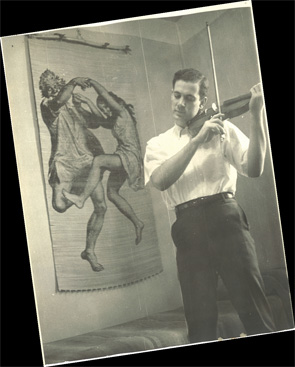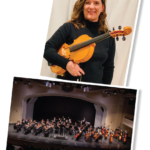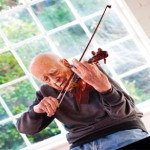
What some people won’t do for love.
Allen Steere, MD, had his first crush on a girl at age 12. Her name was Gretchen. She was a bit different than most young girls at his school: She played the violin.
At the time, Dr. Steere, now professor of medicine at Harvard Medical School and a rheumatologist at Massachusetts General Hospital, in Boston, played the piano. But he liked Gretchen more than he liked playing the piano, so he took up the violin in hopes of spending more time with her and impressing her with his musical ability.
Over the years, it was Dr. Steere’s love of the violin that flourished. He studied and performed with some of the world’s greatest musicians and teachers. At age 28, however, he was forced to give up his life’s passion due to focal dystonia, a disorder involving involuntary contractions. With no cure or treatment available, he learned to compensate for his disability and returned to his musical roots—the piano. After hundreds of performances, he says he needs to make music just as much as he needs to heal patients, and he feels grateful for the opportunity to do both. [Audio clip: Listen to Dr. Steere’s thoughts on what music contributes to his life, his practice and to medicine.]
Practice Pays Off
Dr. Steere says he chose the violin because it’s a very important instrument in an orchestra, partially because it’s really the only one that mimics the human voice. “It’s a very expressive instrument, as the human voice is an expressive instrument,” he explains.
After countless hours of private violin lessons and daily practice, Dr. Steere was a fairly accomplished violinist by age 18. He began performing with the orchestra in his hometown in Indiana—The Fort Wayne Philharmonic Orchestra.
While attending Columbia College and then Columbia Medical School during the 1960s, Dr. Steere became the concertmaster of the college’s orchestra, performing a concerto each year. Even in medical school, he made time to piece together an orchestra that was largely composed of other medical students. Every year, he also played a concerto with the orchestra, and every month, he gave solo performances at recitals throughout the city.
Dr. Steere possessed both the talent and good fortune to study privately with Ivan Galamian for eight years. Galamian taught violin at The Julliard School and is recorded by history as the greatest violin teacher of the 20th century. Galamian founded a summer program called Meadowmount School of Music in the Adirondack Mountains of upstate New York, which Dr. Steere and other exceptional music students attended.


